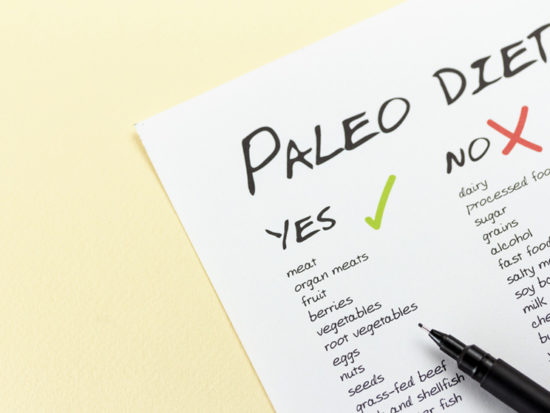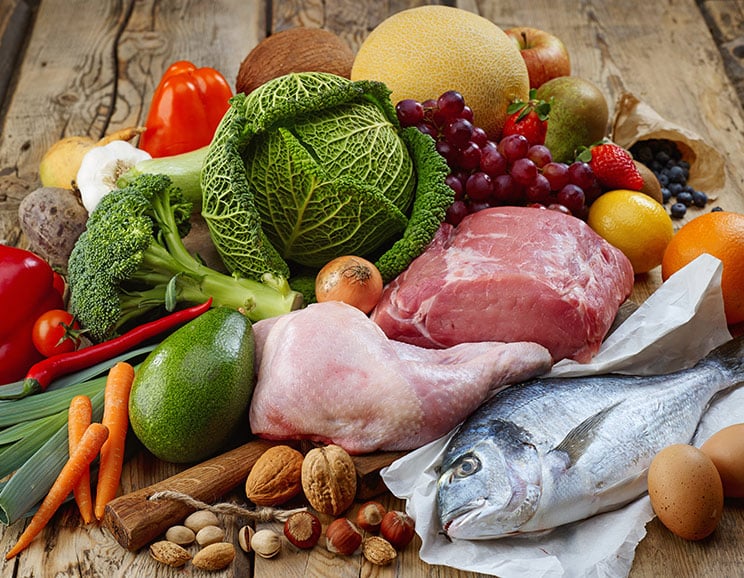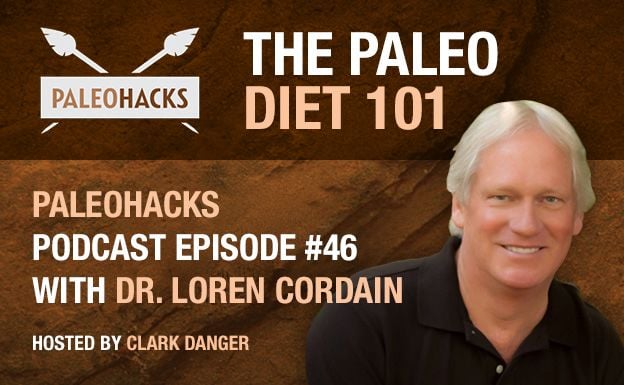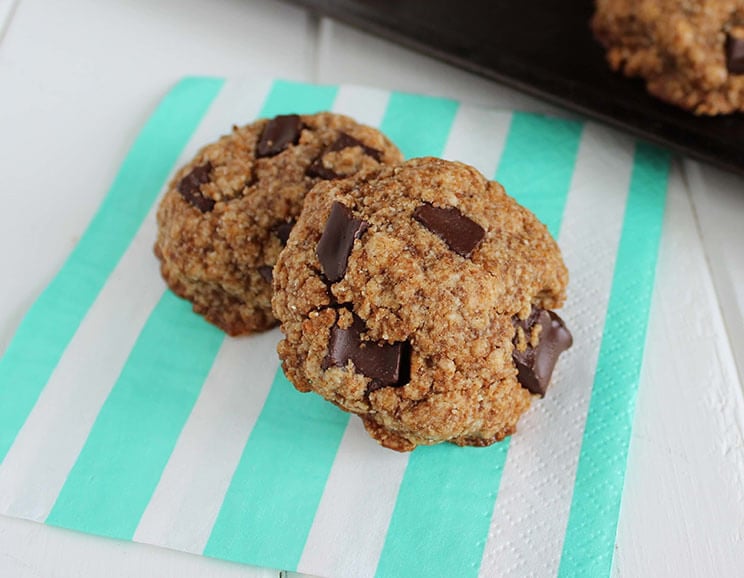Going primal and want to know which foods to add to shopping list? We’ve got a quick and easy breakdown of which Paleo-approved goods will make your cart.
An important tip to remember: a lot of the items on your list will be whole foods and include just the bare necessities. If possible, try to shop at your local farmer’s market for most of your Paleo foods. It will end up being healthier (and tastier!) in the long run.
Of course, this is just a simple guideline to help get you started if you’re new to Paleo. If you’re looking for a more comprehensive list, head on over to our Paleo Diet Foods List.
Meats
All animal protein should be organic, grass-fed and/or pasture-raised.
- Poultry: chicken, turkey, duck, geese, guinea fowl, pigeon, ostrich, emu, partridge, pheasant, quail, eggs
- Red meat: beef, lamb, pork, venison, veal, mutton, goat, bison, elk, buffalo
- Game: wild boar, reindeer, rabbit, moose
Seafood
Be sure to purchase seafood that’s sustainably sourced and wild-caught. Avoid fish heavily exposed to environmental toxins.
- Mahi Mahi
- Prawns
- Oysters
- Mussels
- Salmon
- Tuna
- Scallops
- Crawfish
- Trout
- Octopus
- Squid
- Shrimp
- Clams
- Tilapia
- Lobster
- Crab
Vegetables
When it comes to vegetables on the Paleo diet, it’s easier to know which don’t make the list: legumes – beans, peanuts, soybeans, etc. – and some starches (see which ones are best for you below). Almost everything else gets the green light!
- Leafy greens: kale, spinach, lettuce, arugula, bok choy, beet greens, chard, mustard greens, radicchio, turnip greens, purslane, watercress, collard greens, dandelion greens, cabbage
- Cruciferous vegetables: Brussels sprouts, broccoli, broccolini, cauliflower, kohlrabi, broccoli rabe, rutabaga, horseradish, radish, daikon
- Tubers and safe starches: carrots, sweet potatoes, yams, parsnips, taro, cassava, yucca
- Squashes: butternut, acorn, zucchini, yellow squash, pumpkin, Mexican gray squash, Kabocha squash, Delicata squash, spaghetti squash
Fruits
All fruits are Paleo but it’s more beneficial to consume fruits in their raw, unaltered form. Still, we’re never ones to refuse a delicious smoothie, either. Whenever possible, try to stick to fruits high in antioxidants, and lower in sugar.
- Berries: blueberries, blackberries, acai, raspberries, lingonberries, Marion berries, cranberries, strawberries, goji, elderberries, currants, bilberries
- Stone fruit: peaches, nectarines, apricots
- Citrus: lemons, oranges, limes, grapefruits, tangerines, pomelos
- Avocados
Nuts and Seeds
Nuts and seeds add a great texture to many salads and are a popular substitute for flour and cheese. Just a friendly reminder – peanuts do not make the list. Nuts and/or nut butters should not be a main course item – use them as an extra bonus from time to time.
Nuts: Macadamia, walnuts, hazelnuts, almonds, pistachios, pine nuts
Seeds: Flax seeds, pumpkin seeds, sunflower seeds, sesame seeds
Oils
Stay away from highly-refined oils like canola and vegetable oil, as they have low nutrient quality. Instead, opt for the oils below – which pack a wallop of healthy fats!
- Olive oil
- Coconut oil
- Walnut oil
- Avocado oil
- Rendered animal fats
- Ghee
Sweets
Just because you can’t swing by the junk food aisle anymore (well you can – we just don’t recommend it) that doesn’t mean you can’t enjoy the occasional treat! Here are some tasty alternatives to refined sugar:
- Dark chocolate
- Raw honey
- Blackstrap molasses
- Stevia
- Maple syrup
Drinks
Be wary of most “natural” fruit juices. Most of them are loaded with way too much sugar! And rather surprisingly – these “natural juices” barely contain any real fruit at all! Stick to these beverages, when filling up your cart:
- Water
- Coconut milk
- Coconut water
- Almond milk
- Tea


 5 Mobility Exercises That Feel Better Than Stretching
5 Mobility Exercises That Feel Better Than Stretching








Show Comments